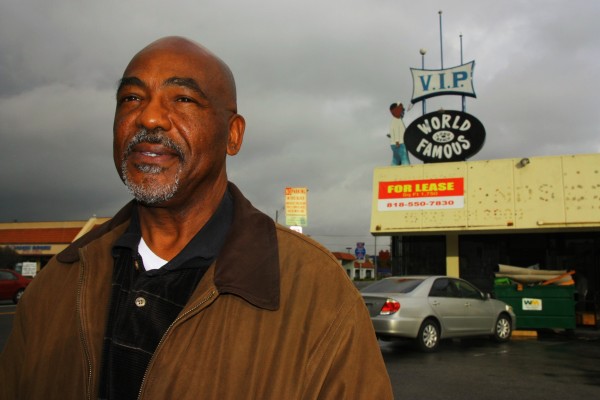Perhaps the most influential musical figure to emerge out of Los Angeles in a generation was  Chalino Sanchez, who was found shot to death 20 years ago today outside Culiacan, the capital city of his native state of Sinaloa, Mexico.
Chalino Sanchez, who was found shot to death 20 years ago today outside Culiacan, the capital city of his native state of Sinaloa, Mexico.
An unlettered immigrant who spoke no English, he virtually singlehandedly created the narcocorrido genre of music, with songs he composed himself that act today as an oral history of the lawless ranchos — villages — of Sinaloa, Durango, Chihuahua and other northwest Mexican states, where impunity and drug trafficking were rife.
On May 15, 1992, he’d given a show in Culiacan and gone out afterwards with friends. A group of men dressed as policemen stopped the caravan of cars and took Chalino. His body was found in a field the next day with two bullets in his head.
Sanchez was already an underground star in LA by then. His death confirmed his street cred and he became a phenomenon. He is today a legend and well known to kids who weren’t even born when he was alive.
Chalino also did the impossible by making tubas, accordions and clarinets hip and cool instruments, so much so that young Latino kids would blast tuba- and accordion-based polkas from their trucks as they drove down the streets of towns in southeast LA County. Still do.
Hundreds, perhaps thousands, of LA-born kids followed him, becoming narcocorrido singers and sounding and looking just like the master.
I’ve always felt, though, that they imitated the wrong part of Chalino — his dress, his raw style of singing. Instead, the point of Chalino’s life, I’ve always thought, was to follow your own vision, your own way of doing things. People would tell him to shut up, that he couldn’t sing. “I don’t sing; I bark,” he said, fully aware of his own musical shortcomings. But he kept on, trusting his own experience and ability. he wrote corridos from the people he met in LA; recorded them in small studios, then sold the cassettes of these songs at Mexican bakeries, butcher shops and at swap meets.
DIY — that’s how great things are accomplished.
The narcocorrido scene he fathered in LA was one of the great DIY musical movements to come out of LA. First was punk, in Hollywood. Then gangster rap out of Compton. Then narcocorridos out of Huntington Park, Paramount, and other southeast LA County cities.
You can read more about him in my first book, True Tales From Another Mexico: The Lynch Mob, the Popsicle Kings, Chalino and the Bronx.
There’s a concert in his honor on Friday at the Gibson Amphitheater, which should be great, and a tour coming out of that later this year.
A great punkrock spirit. RIP Chalino Sanchez.



